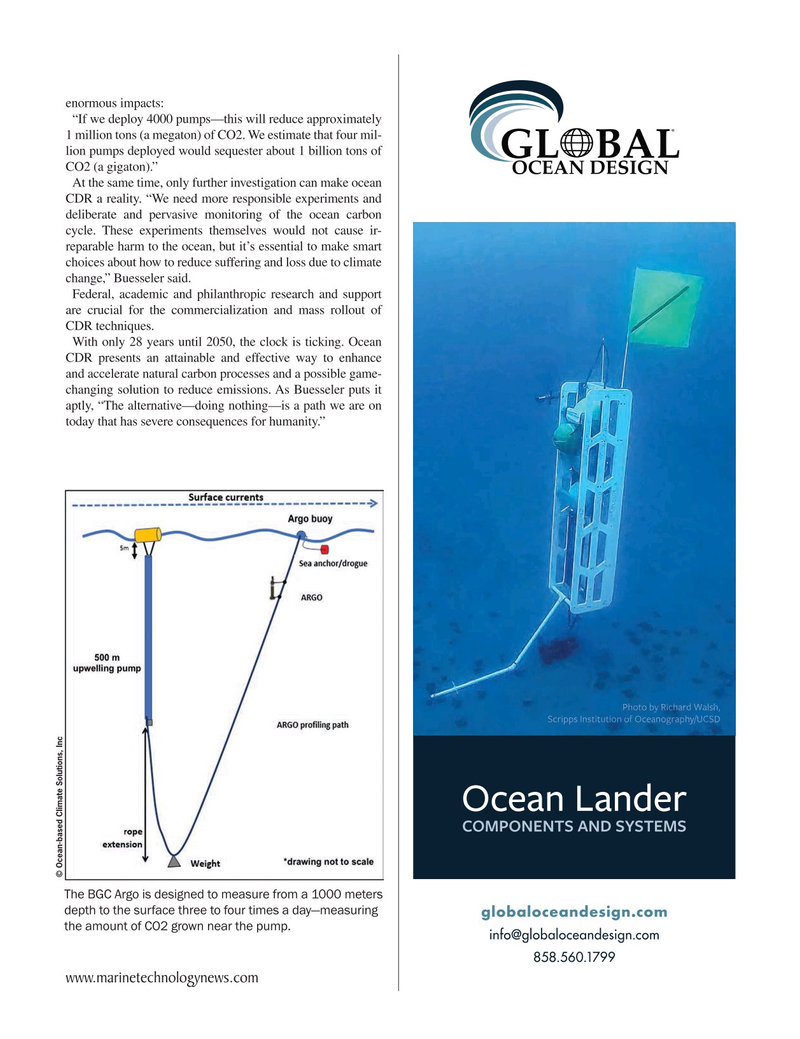
Page 49: of Marine Technology Magazine (March 2022)
Read this page in Pdf, Flash or Html5 edition of March 2022 Marine Technology Magazine
enormous impacts: “If we deploy 4000 pumps—this will reduce approximately 1 million tons (a megaton) of CO2. We estimate that four mil- lion pumps deployed would sequester about 1 billion tons of
CO2 (a gigaton).”
At the same time, only further investigation can make ocean
CDR a reality. “We need more responsible experiments and deliberate and pervasive monitoring of the ocean carbon cycle. These experiments themselves would not cause ir- reparable harm to the ocean, but it’s essential to make smart choices about how to reduce suffering and loss due to climate change,” Buesseler said.
Federal, academic and philanthropic research and support are crucial for the commercialization and mass rollout of
CDR techniques.
With only 28 years until 2050, the clock is ticking. Ocean
CDR presents an attainable and effective way to enhance and accelerate natural carbon processes and a possible game- changing solution to reduce emissions. As Buesseler puts it aptly, “The alternative—doing nothing—is a path we are on today that has severe consequences for humanity.” h d Wals h h ha ha har by by Richard Wals P to by Phot by by by Richard Wals Photo by Richard Wals P P Pho o o by Ric ic ic ichar ar rd W W Wals ls l lsh, h, h h, h, h, h h,
UC hy hy/UCS hy/UCS fO ce nog fO cean nography/UCS itu itution f Ocea o itutiono f Oceanography/UCS Sc ipp nstitution of Oceanography/UCS Scr S S Scripps I s I s s nst st st t stitu tu tutio i io on o o o ofO ceanograp p phy/ y UCSD D D D D D DUCSD
Ocean Lander
COMPONENTS AND SYSTEMS © Ocean-based Climate Solutions, Inc
The BGC Argo is designed to measure from a 1000 meters depth to the surface three to four times a day—measuring globaloceandesign.com the amount of CO2 grown near the pump. [email protected] 858.560.1799 www.marinetechnologynews.com
MTR #3 (34-49).indd 49 2/25/2022 10:19:21 AM

 48
48

 50
50
